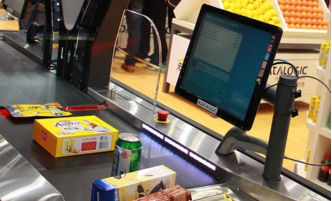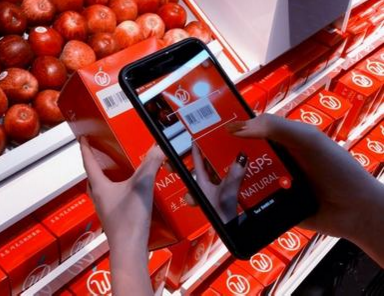
News Center
New retail of unmanned stores brings sensor business opportunities
- Categories:Industry information
- Time of issue:2017-07-21 17:31
(Summary description) In recent days, news reports about Ali's unmanned stores have been extremely hot. If the people are watching the excitement, the industry is more concerned about the new retail model of unmanned stores to drive related sensor business opportunities. Its storefront reading and writing equipment is arranged at the cash register. Link. After entering the unmanned retail experience store, the customer will receive a special shopping basket, and then put the purchased goods into the shopping basket; from a technical point of view, this approach is to allow UHF RFID tags to leave the human body for convenience Read correctly. When a customer enters an unmanned settlement channel, only one person is allowed to pass. This is also to prevent tag reading and avoid settlement errors. With the gradual maturity of emerging technologies such as artificial intelligence and machine vision, new retail represented by unmanned retail has attracted the attention of major e-commerce platforms and well-known brands. From Amazon's Amazon Go to Alibaba's "Tao Coffee", unmanned stores have swept across. Some small and medium-sized startups have gradually emerged with their artificial intelligence technology, and unmanned stores are expected to become the next explosive application of the Internet of Things after bicycle sharing. According to data from iiMedia Research, the transaction volume of unmanned retail stores in 2017 is expected to reach RMB 38.94 billion (the same units below). In the next five years, unmanned retail stores will usher in a period of development dividends, and the expected growth rate in 2020 Up to 281.3%, the market transaction volume will exceed RMB 1.8 trillion by 2022. In 2017, the user scale of China's unmanned retail stores was only 6 million, and the user scale will increase substantially in the next five years. By 2022, the number of users will reach 245 million. From a business perspective, unmanned convenience stores can reduce labor costs, expand application scenarios, and have the ability to replicate on a large scale. From the perspective of consumer demand, the consumption habits of unmanned convenience stores are clearly reflected in the younger generation of consumer groups, and even in the wealthy class. Industry players have successively launched unmanned stores, such as Bianlifeng and Lawson unmanned convenience stores. TakeGo unmanned store was unveiled at the Beijing Zhima Credit Conference in February 2017. It was realized by the fast cat smart retail system launched by Deep Blue Technology; large supermarkets such as Auchan and RT-Mart began to try the BingBox unmanned store model. In June 2017, Shenlan Technology, together with Ant Financial, Alipay, and Nvidia, released three TakeGo unmanned store technologies. Wahaha and Shenlan Technology signed a three-year 100,000 TakeGo unmanned store agreement. Subsequently, Yili also plans to promote unmanned convenience micro-shops launched in cooperation with Shenlan Technology in more than 2,000 communities. At the 2017 Taobao Creation Festival, the long-planned unmanned retail program "Tao Coffee" officially unveiled by Alibaba Labs. It is a physical store with an area of 200 square meters, which integrates shopping and catering, and can accommodate more than 50 users, eliminating the need for queuing, scanning, or even a mobile phone offline pop-up store. Tao Coffee tries to use an integrated physical store unmanned settlement solution to give physical stores the same as online the ability to create a convenient and efficient experience and rely on data for intelligent operation, forming an infinite loop between online and offline, and connecting Alibaba e-commerce sector The core competence of the company is poured into offline consumption scenarios. Compared with Amazon Go, Tao Coffee designed the payment function on the "payment door" when it leaves the store, and the shelf area uses video information capture to optimize operations and help settlement. The technologies involved include the combination of multiple cameras and sensors, computer vision, artificial intelligence, and deep learning. In specific scenarios, biometrics and other technologies are responsible for authenticating customers and binding Taobao ID; walking into the shelf, picking up the product, and tracking data to record the inventory status of the shelf and the mood of the consumer when shopping; "settlement "Door" will have image recognition technology and so on. At present, there are two types of unmanned stores that are common in the market. One is the unmanned store with machine vision technology, and the other is the combination of radio frequency identification (RFID) technology and some vending machines. Amazon Go, Tao coffee and TakeGo can be classified as the first category; the second category is mainly 7-11, Lawson unmanned stores, etc. Machine vision is to use machines instead of human eyes for meas
New retail of unmanned stores brings sensor business opportunities
(Summary description) In recent days, news reports about Ali's unmanned stores have been extremely hot. If the people are watching the excitement, the industry is more concerned about the new retail model of unmanned stores to drive related sensor business opportunities. Its storefront reading and writing equipment is arranged at the cash register. Link. After entering the unmanned retail experience store, the customer will receive a special shopping basket, and then put the purchased goods into the shopping basket; from a technical point of view, this approach is to allow UHF RFID tags to leave the human body for convenience Read correctly. When a customer enters an unmanned settlement channel, only one person is allowed to pass. This is also to prevent tag reading and avoid settlement errors.
With the gradual maturity of emerging technologies such as artificial intelligence and machine vision, new retail represented by unmanned retail has attracted the attention of major e-commerce platforms and well-known brands. From Amazon's Amazon Go to Alibaba's "Tao Coffee", unmanned stores have swept across. Some small and medium-sized startups have gradually emerged with their artificial intelligence technology, and unmanned stores are expected to become the next explosive application of the Internet of Things after bicycle sharing.
According to data from iiMedia Research, the transaction volume of unmanned retail stores in 2017 is expected to reach RMB 38.94 billion (the same units below). In the next five years, unmanned retail stores will usher in a period of development dividends, and the expected growth rate in 2020 Up to 281.3%, the market transaction volume will exceed RMB 1.8 trillion by 2022.
In 2017, the user scale of China's unmanned retail stores was only 6 million, and the user scale will increase substantially in the next five years. By 2022, the number of users will reach 245 million.
From a business perspective, unmanned convenience stores can reduce labor costs, expand application scenarios, and have the ability to replicate on a large scale. From the perspective of consumer demand, the consumption habits of unmanned convenience stores are clearly reflected in the younger generation of consumer groups, and even in the wealthy class.
Industry players have successively launched unmanned stores, such as Bianlifeng and Lawson unmanned convenience stores. TakeGo unmanned store was unveiled at the Beijing Zhima Credit Conference in February 2017. It was realized by the fast cat smart retail system launched by Deep Blue Technology; large supermarkets such as Auchan and RT-Mart began to try the BingBox unmanned store model.
In June 2017, Shenlan Technology, together with Ant Financial, Alipay, and Nvidia, released three TakeGo unmanned store technologies. Wahaha and Shenlan Technology signed a three-year 100,000 TakeGo unmanned store agreement. Subsequently, Yili also plans to promote unmanned convenience micro-shops launched in cooperation with Shenlan Technology in more than 2,000 communities.
At the 2017 Taobao Creation Festival, the long-planned unmanned retail program "Tao Coffee" officially unveiled by Alibaba Labs. It is a physical store with an area of 200 square meters, which integrates shopping and catering, and can accommodate more than 50 users, eliminating the need for queuing, scanning, or even a mobile phone offline pop-up store.
Tao Coffee tries to use an integrated physical store unmanned settlement solution to give physical stores the same as online the ability to create a convenient and efficient experience and rely on data for intelligent operation, forming an infinite loop between online and offline, and connecting Alibaba e-commerce sector The core competence of the company is poured into offline consumption scenarios.
Compared with Amazon Go, Tao Coffee designed the payment function on the "payment door" when it leaves the store, and the shelf area uses video information capture to optimize operations and help settlement. The technologies involved include the combination of multiple cameras and sensors, computer vision, artificial intelligence, and deep learning.
In specific scenarios, biometrics and other technologies are responsible for authenticating customers and binding Taobao ID; walking into the shelf, picking up the product, and tracking data to record the inventory status of the shelf and the mood of the consumer when shopping; "settlement "Door" will have image recognition technology and so on.
At present, there are two types of unmanned stores that are common in the market. One is the unmanned store with machine vision technology, and the other is the combination of radio frequency identification (RFID) technology and some vending machines. Amazon Go, Tao coffee and TakeGo can be classified as the first category; the second category is mainly 7-11, Lawson unmanned stores, etc.
Machine vision is to use machines instead of human eyes for meas
- Categories:Industry information
- Time of issue:2017-07-21 17:31




Top Ranking
RECOMMEND NEWS
Top Ranking
RECOMMEND NEWS
ONLINE MESSAGE
WRITE A MESSAGE TO US
v
Contact us
Tel:
+86 731-86171990
Email:
sales@firstratesensor.com
Address: 4th Floor, Building 1, Zhitingyuan, Zhenhua Road, Yuhua District, Changsha City, Hunan Province,China.







